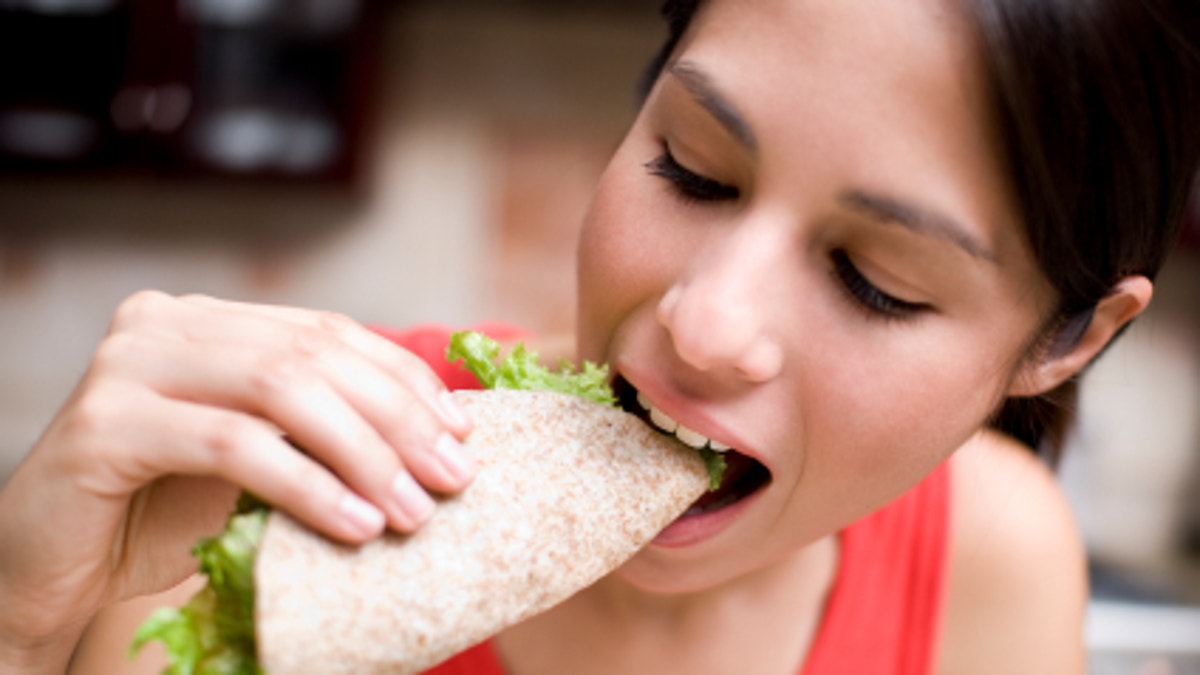
1. Thailand - Spice it up
Thai food is among the spiciest in the world. Hot peppers raise your metabolism, but the real benefit of food with a little zing is that it slows your eating, says James Hill, past president of the American Society for Nutrition.
"Americans eat too fast," he says. "By the time your body signals that it's full, you've overeaten. Eating slower is a good weight-loss strategy, and making food spicier is an easy way to do it."
2. United Kingdom - Downsize the supersizing
If you walk into a McDonald's in London, the clerk won't ask if you'd like to "supersize" that. This option was discontinued in the U.K. after it accounted for less than 0.1 percent of sales. The Brits prefer smaller portions—perhaps a lingering vestige of the frugality instilled by World War II rationing, says Simon Hartley, executive editor of Reader's Digest U.K.
In the United States, McDonald's has backed off supersizing too. But a large Coke here still contains 100 calories more than one in the U.K., and there's no such thing as a Double Quarter Pounder with Cheese in Great Britain. Take the hint: Who really needs to eat a half-pound of meat at a sitting?
3. Brazil - Serve a side of rice and beans
All that shaking at Carnaval isn't the only body-friendly habit in Rio; Brazilians stay slim by enjoying this traditional dish with just about every meal, says Sergio Charlab, editor of Reader's Digest Brazil.
A study in the journal Obesity Research found that a diet consisting primarily of rice and beans lowers the risk of becoming overweight by about 14 percent when compared with typical Western fare. That's because it's lower in fat and higher in fiber, which is thought to stabilize blood sugar levels. It may be counter-intuitive, but a diet full of beans equals a beach-ready body.
_________________________________________________________________________
More From Health.com:
Best Superfoods for Weight Loss
16 Little Ways to Lose Big Pounds
Secrets of the World’s Healthiest Women
_________________________________________________________________________
4. Poland - Eat at home more often than you eat out
Poles typically spend only 5 percent of their family budget on eating out. According to U.S. Department of Agriculture statistics, the average American family spends 37 percent of its food dollars at restaurants and fast-food joints.
To save money and pounds, start tracking how often you eat out and how much you spend each month, and gradually cut back. "People who don't cook at home tend to eat less healthy food and be heavier than people who do," says journalist and activist Michael Pollan. "In fact, the collapse of cooking in a society tracks very closely its rise in obesity."
5. Germany - Eat your breakfast
An impressive 75 percent of Germans eat breakfast daily (compared with just 44 percent of Americans). They're not grabbing Egg McMuffins either; they're sitting down to fruit and whole-grain cereals and breads.
Nutritionists have been advising people not to skip breakfast for years, but recent studies give a better picture of its importance. In one, British researchers discovered that if you haven't eaten breakfast, your brain's reward center will light up more vividly when you see a high-calorie food—making you more likely to indulge. Finally, a scientific explanation for that irresistible urge to pull into Dunkin' Donuts.
6. Russia - Carve out a dacha plot
Country houses, or dachas, where 51 percent of city folk spend vacations and summer weekends, almost always feature a garden.
Russians grow their own vegetables and fruits and preserve and can what they grow. That makes their diet more nutritious. And "there's not much you can grow in a garden that will make you fat," notes Hill.
7. Mexico - Make the midday meal the biggest
Instead of ingesting the bulk of the day's calories in the evening, as most Americans do, Mexicans traditionally eat their biggest meal between 2 and 4 p.m. If you eat less at night, you'll wake up hungrier and eat a bigger breakfast, which facilitates weight control.
As a general fat-fighting rule, try to get the bulk of your daily calories at breakfast and lunch.
Click here to check out more global weight-loss tips from Health.com.
